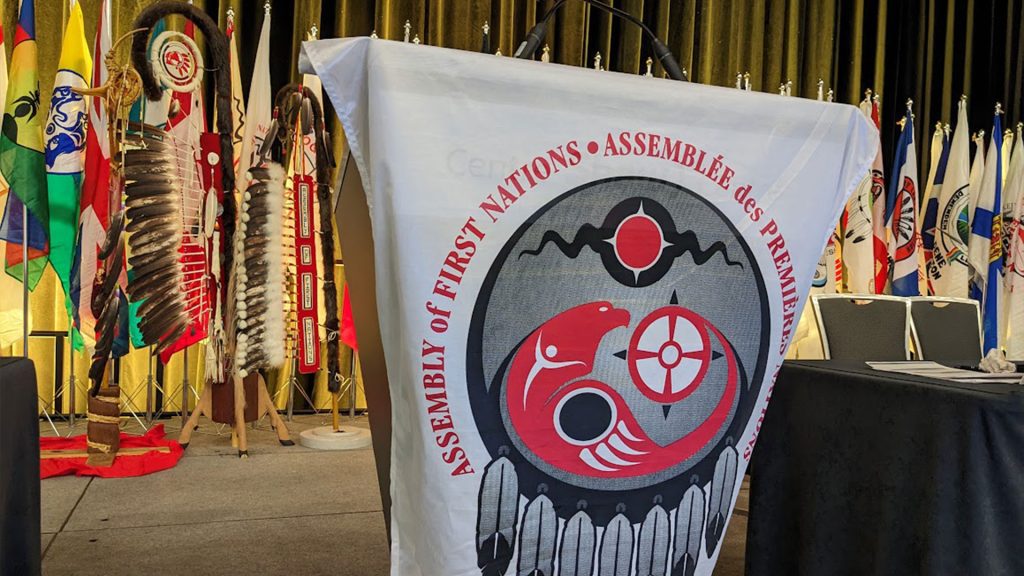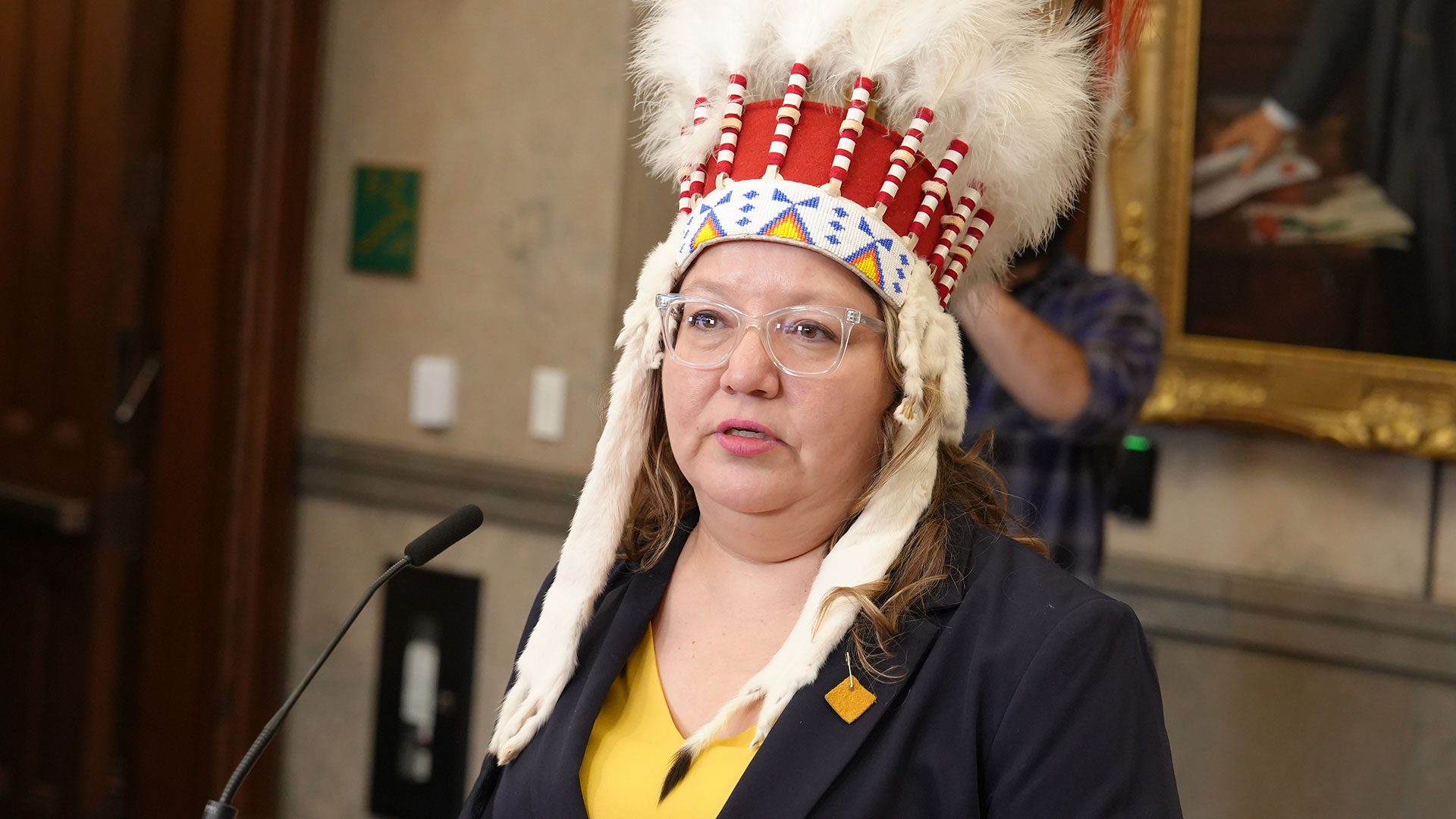
The regional chief for the Assembly of First Nations (AFN) in British Columbia says he’s deeply concerned by what seems to be an intervention by the national chief to expedite federal water legislation through a parliamentary committee by having a number of amendments removed.
“While we respect the urgency of passing C-61, it must be done so through an unfettered due process, respecting the autonomy of First Nations and the regional AFN offices upon which the National Chief depends upon,” said Terry Teegee, in a Nov. 25 letter to the national chief on behalf of the BC Assembly of First Nations, or BCAFN.
“Transparency must underscore the work that the AFN undertakes on behalf of rights and title holders. We look forward to an imminent resolution on this issue.”
C-61 is the legislative name of a proposed federal law governing drinking water on “First Nations lands.” The law is being studied by the Indigenous Affairs committee.
On Nov. 21, NDP MP Lori Idlout (Nunavut) told the committee that she was rescinding several amendments she had proposed at the request of the AFN.
“Yesterday, the national chief contacted me to ask me to remove their amendments due to the time it is taking to amend Bill C-61,” Idlout told the Indigenous affairs committee. “I respect the will of the AFN and I respectfully withdraw those amendments. I will, however, keep the amendments submitted by independent First Nations out of respect for their jurisdiction over their lands, territories and resources.
Teegee said in the letter that chiefs in B.C. “share deep concern and dismay regarding the request to withdraw the NDP’s amendments.”
The letter said corresponding with the NDP was made without “engaging the Chiefs Committee on Housing and Infrastructure; notifying or seeking direction from the Joint Technical Working Group mandated by chiefs in assembly, seeking direction and support from the AFN Executive prior to engaging INAN and without any regard for the direction provided by the First Nations-in-Assembly.”
Teegee was also one of three regional chiefs, along with Bobby Cameron (Saskatchewan) and Ghislain Picard (Quebec/Labrador) who took Woodhouse Nepinak to task in the summer over what they saw as the AFN overstepping its authority to negotiate a child welfare deal. That deal was defeated by chiefs at a special assembly in Calgary in October.
“This unilateral decision interfered with legislative due process and potentially hindered the success of Bill C-61,” said Teegee in the recent letter. “Canada has already failed its duty to consult rights holders across Canada on the first distinctions-based legislation since the passing of the United Nations Declaration on the Rights of Indigenous Peoples Act (UNDA).
“The UNDA Action Plan commits to “advancing development and introduction, in consultation with First Nations, of new proposed First Nations drinking water and wastewater legislation that includes pathways to protect source water and legally enforceable safe drinking water protections on First Nation lands comparable to those in place in provinces and territories.
“It is paramount that all efforts are exhausted to align Bill C-61 with the UN Declaration and the UNDA Action Plan.”
It’s not clear what the rescinded amendments asked for. 
Woodhouse Nepinak, seen here on Parliament Hill in October, says that she was concerned the committee was shifting to ‘other topics. Photo: Mark Blackburn/APTN.
Woodhouse Nepinak, who is set to face chiefs at the annual December meeting in Ottawa, sent a statement regarding the letter from the BCAFN.
Woodhouse Nepinak, who is set to face chiefs at the annual December meeting in Ottawa, sent a statement regarding the letter from the BCAFN.
“Bill C-61 is an important first step toward ensuring safe and clean drinking water for First Nations,” said the national chief in the statement. “The AFN has participated in the legislative process by providing a submission to the Standing Committee on Indigenous and Northern Affairs (INAN) and appearing before the committee to propose amendments aligned with the direction provided by the First Nations-in-Assembly.
“However, we are concerned that instead of focusing on the need to advance Bill C-61, discussions in committee shifted to other topics that, while important, should not take priority over advancing this critical piece of legislation. We have urged INAN members to prioritize Bill C-61 and ensure that it adequately supports First Nations’ rights and reflects First Nations’ perspectives.
“The AFN is prepared to continue advocating through submissions and appearances to strengthen the legislation and ensure it aligns with First Nations’ rights and needs. This includes ensuring that First Nations’ rights are respected, particularly regarding source water protection, the creation of a framework for adequate and sustained funding, and the recognition of First Nations’ jurisdiction over water and wastewater systems. We encourage all First Nations to do the same.”
Woodhouse Nepinak didn’t address the concerns raised in the letter from the BCAFN.
The AFN is an organization that lobbies on behalf of more than 600 First Nations in Canada.
Read More:
Chiefs in Calgary pass resolution to re-negotiate child welfare deal with Ottawa
In the letter, Teegee reminded Woodhouse Nepinak that her position as national chief has “no inherent political authority.”
“Any authority the National Chief may have shall derive exclusively and entirely from authority granted from time to time by the First Nations-in-Assembly,” Teegee wrote.
“The Executive Committee shall function as a unit and any decisions or actions by any individual member of the Executive Committee shall be null and void and of no force or effect.”
Teegee is also calling for the AFN to call an emergency meeting of the executive committee to “discuss the concerns identified in this letter.” The executive committee is made up of regional chiefs from the across the country. Teegee is also asking that the national chief “and her office immediately share all information, both confidential (under NDA) or otherwise, that informed the decision to request the withdrawal of the NDP’s amendments of Bill C-61.”
APTN reached out to Teegee but didn’t hear back.
The letter also requests that the INAN rescind the request by the NDP to remove the amendments.
Finally, Teegee is asking for “an apology to the AFN First Nations-in-Assembly, CCoHI, JTWG, and the AFN Executive for contravening the AFN Charter and a firm commitment to accountability and transparency moving forward.”
Editor’s Note: This story was edited to clarify that the NDP amendments were brought by the AFN and were not those of Lori Idlout.










